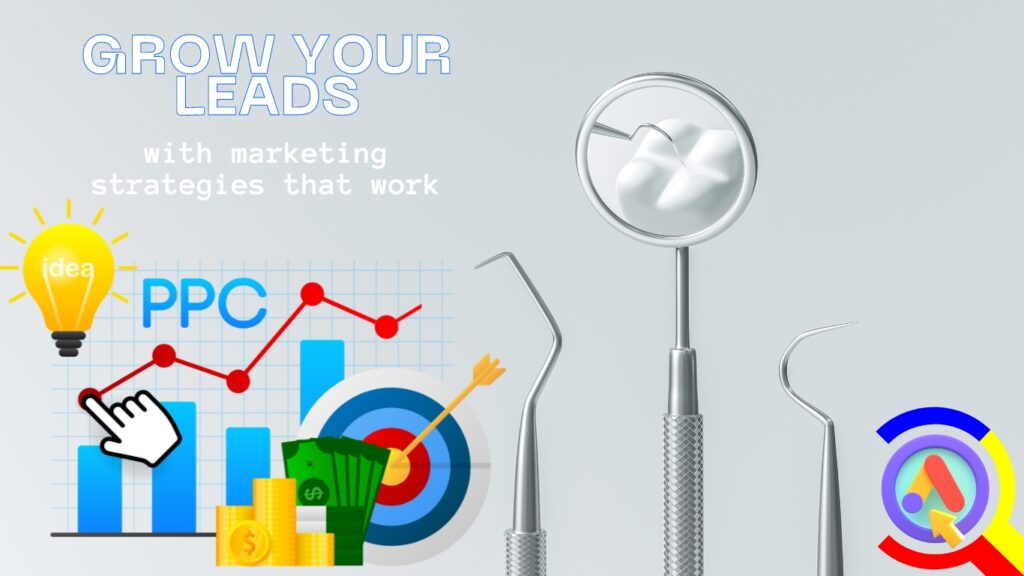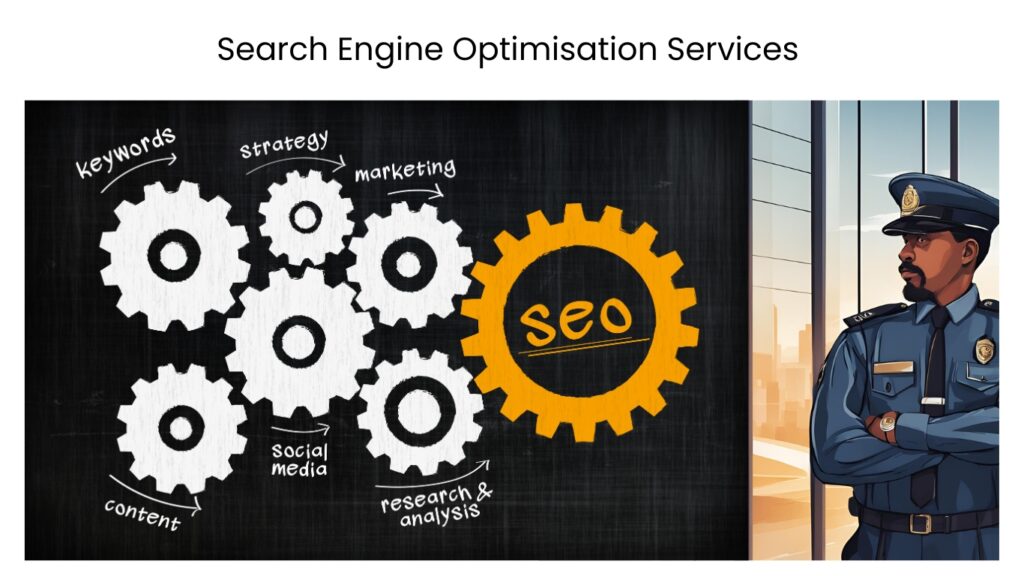Table of Contents
Introduction to 360-degree Digital Marketing
What is 360-degree Digital Marketing?
Why 360-degree Digital Marketing Matters?
Comprehensive Overview of 360-degree Digital Marketing Strategies
Benefits of 360-degree Digital Marketing
How to construct a 360-degree digital marketing strategy
Tools and Technologies for 360-degree Digital Marketing
Best Practices for a Successful 360-degree Digital Marketing Campaign
360-degree Digital Marketing Courses Fee Structure
Factors Affecting the Cost of 360-degree Digital Marketing Courses
Conclusion
Introduction to 360-degree Digital Marketing

Getting around a city without a map or guidance can be chaotic and confusing. Similarly, marketing without a 360-degree digital strategy can be disorganized and ineffective.
With the advancement of technology and digital interactions taking centre stage, every click, swipe, and scroll counts. Relying on fragmented marketing tactics is like moving without purpose. That’s why 360-degree digital marketing is your all-in-one roadmap to success.
What is 360-degree Digital Marketing?
360-degree digital marketing is a comprehensive approach designed to engage with your target audience through every digital touchpoint. It combines various marketing channels and techniques to deliver a unified experience that covers every aspect of the customer’s interaction with your brand. This all-encompassing approach guarantees that your brand’s message remains consistent, engaging, and ever-present.
The essentials of 360-degree Digital Marketing include:
- Presence Across Multiple Channels.
- Unified Messaging.
- Data-Driven Insights.
- Customer-Focused Approach.
Why 360° Internet Marketing Matters?
A 360-degree digital marketing strategy is crucial not only for increasing visibility across digital platforms to engage, convert, and retain customers but also for expanding the reach and impact of your products or services.
Here are reasons why adopting 360-degree digital marketing offers several advantages for your business:
Broader Reach:
Relying on a single channel can limit brand diversification and audience reach. 360-degree marketing amplifies your brand’s presence across multiple marketing channels.
Instead of just being on different channels, a 360-degree marketing approach makes sure your brand provides a consistent and engaging experience everywhere—be it social media, targeted ads, email campaigns, or SEO efforts. This way, your brand message will be clear and impactful.
Better Consistency:
Consistent messaging across various digital platforms builds trust and authenticity.
Strategic Refinement:
This approach serves as a strategic tool for improving business operations and optimizing customer relationship management.
Comprehensive Overview of 360-degree Digital Marketing Strategies
A successful 360-degree digital marketing strategy includes various elements:
Search Engine Optimisation (SEO)
SEO is essential for improving your website’s organic visibility in search engine results. It involves upgrading your site’s content, structure, and backlinks to achieve higher rankings for relevant keywords.
Email Marketing
Email marketing is a strong tool for developing leads and maintaining customer relationships. Well-timed, personalized emails can increase engagement and drive conversions.
Content Marketing
Content marketing is about creating valuable and relevant content to attract and retain a specific audience. High-quality blogs, infographics, and videos can establish your brand as an industry leader and support other digital marketing efforts with shareable and linkable content.
Social Media Marketing
Social media platforms are key for reaching and engaging with your audience. They offer opportunities for brand building, customer interaction, and targeted advertising. A strong social media presence is crucial for a 360-degree digital marketing strategy.
Web Analytics
Tools like Google Analytics and Google Tag Manager provide valuable insights into your website’s performance, user behavior, and how well your campaigns are doing. These insights help you make data-driven decisions.
Customer Relationship Management (CRM)
CRM systems manage customer interactions, track leads, and personalize marketing efforts. They are essential for maintaining a complete view of the customer journey.
Pay-Per-Click (PPC) Advertising
PPC campaigns, such as Google Ads, allow businesses to reach potential customers who are actively searching for your products or services. They complement organic efforts and can deliver quick results.
Inbound Lead
This strategy attracts and encourages potential customers through valuable content and personalized communication, guiding them through the sales funnel.
Outbound Email Campaigns
Targeted outbound email campaigns aim to reach new potential customers and re-engage inactive leads with promotional offers and engaging messages, complementing inbound strategies.
Benefits of 360° Internet Marketing:
Improved Brand Visibility:
A 360-degree marketing approach places your brand across multiple digital platforms. This increases the likelihood of your audience seeing and recognizing your brand more often, leading to greater visibility.
Consistent Messaging:
By utilizing different marketing channels, you ensure that your brand message remains consistent everywhere. This consistency strengthens your brand identity and helps avoid confusing your audience.
Improved Customer Engagement:
Connecting with customers through various channels—such as social media, email, and ads—creates more opportunities for interaction. This multi-channel approach keeps your audience interested and engaged with your brand.
Higher Conversion Rates:
A 360-degree marketing strategy targets potential customers at various stages of their journey. This method helps guide them more effectively through the sales process, resulting in higher conversion rates.
Better Customer Insights:
Using analytics tools across different platforms provides a comprehensive view of customer behavior. This data helps you make smarter decisions, improve campaigns, and enhance your marketing strategy.
Efficient Resource Utilisation:
Coordinating marketing efforts across channels reduces duplication and waste. A unified plan ensures that all activities align with your goals, leading to more efficient use of resources.
Stronger Customer Loyalty:
A 360-degree marketing strategy allows for more personalized interactions by understanding customer preferences across channels. This helps build trust and loyalty, encouraging repeat business. Regular engagement keeps your brand at the forefront of their minds.
Increased Competitive Advantage:
A well-rounded digital marketing strategy positions your brand ahead of competitors who may only focus on single channels. This approach helps you stay adaptable and responsive to changes and emerging trends.
Adaptability and Flexibility:
A 360-degree approach allows you to quickly adjust to market shifts or changes in consumer behavior. Insights from various channels enable you to make timely strategy adjustments.
Comprehensive Performance Tracking:
Monitoring performance across all channels provides a clear picture of what works and what doesn’t. This thorough view helps you refine your strategy and achieve better outcomes.
How to construct a Cohesive Marketing Strategy
The 6 P’s framework will help you implement 360-degree digital marketing effectively and set your business on the path to success.
Purpose:
Set clear goals with specific, measurable objectives for your 360-degree digital marketing strategy. Know what you want to achieve with your marketing efforts.
Plan:
Create a strategy that covers all marketing channels and aligns with your goals. Make sure your plan addresses every part of your 360-degree approach.
Process:
Use advanced technologies to manage and analyze data from all channels. Set up processes for creating, sharing, and measuring content. Utilise AI tools to automate responses and gather insights for better management and optimization.
People to Target:
Develop content for each channel while keeping a consistent brand voice. Understand the unique features of each platform and stay updated on trends to create content that connects with your audience.
Platform:
Select the best platforms for your marketing activities. Customize your content for each channel to fit its specific characteristics and audience preferences.
Performance:
Regularly review and improve your strategies based on performance data and feedback. Monitor results to make informed adjustments and keep your 360-degree digital marketing effective.
Tools and Technologies for 360° Online Marketing
To execute a successful 360-degree digital marketing strategy, utilize the following essential tools:
Search Engine Optimisation (SEO) Tools
Moz: Provides keyword research, link building, site audits, and rank tracking to improve search engine rankings.
SEMrush: Offers comprehensive SEO, PPC, and content marketing tools, including competitive analysis and keyword research.
Email Marketing Platforms
Mailchimp: Features customizable email templates, automation, and audience segmentation to nurture leads.
HubSpot: Combines email marketing with CRM capabilities for personalized campaigns and detailed analytics.
Content Management Systems (CMS)
WordPress: A flexible CMS for various content types with SEO plugins and performance tools.
Joomla: Offers great features and extensions for managing complex websites and applications.
Social Media Management
Hootsuite: Allows scheduling, publishing, and analytics across multiple social media platforms from a single dashboard.
Buffer: Simplifies social media management with post-scheduling, engagement tracking, and performance insights.
Analytics Tools
Google Analytics: Tracks website traffic, and user behavior, and provides insights to optimize your digital marketing efforts.
Hotjar: Provides heatmaps, session recordings, and user feedback to understand and improve user experience.
Customer Relationship Management (CRM) Systems
Salesforce: Manages customer relationships, sales processes, and marketing campaigns with advanced analytics.
Zoho CRM: Offers lead management, workflow automation, and performance tracking for effective customer relationship management.
These tools bring together different marketing activities, making your 360-degree digital marketing strategy more effective.
Best Practices for a Successful 360-degree Holistic Marketing Campaign
1. Consistency
Maintain uniform messaging across all channels. Consistent branding helps build trust, makes your brand more recognizable, and creates a smooth experience for customers. Develop a brand style guide to ensure all team members follow the same guidelines.
2. Personalization
Customise content and communication to your audience’s preferences. This makes your marketing more engaging, improves the customer experience, and can lead to higher conversion rates. Use data to segment your audience and deliver targeted content.
3. Data-Driven Decisions
Use analytics to guide your strategy and improve performance. Track important metrics to measure effectiveness, identify trends, and optimize campaigns. Tools like Google Analytics and CRM insights are essential for making informed decisions.
4. Adaptability
Be flexible and adjust your approach based on market trends and feedback. Stay open to changing your strategy, listening to feedback, and trying out new ideas. Regularly review and refine your strategies to remain relevant and effective.
5. Effective Budget Management
Distribute your budget smartly among different channels and tactics. Prioritize your spending on those that offer the highest return on investment (ROI). Regularly review your budget to adjust for performance and new opportunities.
6. A/B Testing
Use A/B testing for your content, ads, and emails to determine what works best with your audience. Test different headlines, images, and formats to find the most effective combinations.
7. Strong Call-to-Actions (CTAs)
Make sure all your marketing materials have clear and strong calls to action (CTAs). CTAs should guide your audience toward the desired action, like making a purchase, signing up for a newsletter, or reaching out to your team.
360° Digital Marketing Courses Fee Structure
When considering a 360 digital marketing course, the cost can vary significantly based on several factors, including the provider, course depth, and certification level. Here’s a more detailed breakdown of what you can expect:
Basic Courses
Price Range: $100 – $300
Overview: Basic courses cover the fundamentals of digital marketing, such as SEO, social media, content marketing, and email marketing. These courses are typically shorter in duration, ranging from a few weeks to a couple of months, and may not include advanced topics or practical case studies.
Ideal For: Beginners who are new to digital marketing and want a broad overview of the field.
Advanced Courses
Price Range: $500 – $1,000
Overview: Advanced courses provide deeper insights into specialized areas of digital marketing, such as advanced SEO techniques, data analytics, or multi-channel marketing strategies.
These courses often include more extensive content, interactive elements, and real-world applications. They can last several months and often feature in-depth modules, case studies, and practical exercises.
Ideal For: Professionals with some experience in digital marketing who want to enhance their skills or focus on specific areas of interest.
Certification Programs
Price Range: $1,000 – $2,500
Overview: Certification programs offer a comprehensive and detailed curriculum on 360 digital marketing. These programs often include advanced coursework, hands-on projects, and assessments.
Upon completion, you receive a recognized certification that can improve your credentials and career prospects. The programs can range from a few months to over a year and often include personalized mentorship, networking opportunities, and career support.
Ideal For: Individuals seeking in-depth expertise in digital marketing or those looking to advance their careers with a professional certification.
Factors Affecting the Cost of 360-degree Digital Marketing Courses
Several factors affect the cost of a digital marketing course:
- Course Content: Courses covering a lot of topics or advanced practices are usually pricier.
- Instructor Expertise: Courses taught by well-known experts or experienced instructors often cost more.
- Duration and Format: Longer courses with more materials or flexible formats (like online or in-person) typically have higher fees.
- Certification: Programs that provide a formal certification usually cost more because of the added value.
Understanding these factors will help you choose a course that fits your goals and budget.
Conclusion
360-degree digital marketing is crucial for today’s businesses. It involves using various online channels and strategies together to create a consistent and effective marketing plan. This approach helps strengthen your brand presence, deepen customer relationships, and drive sales. 360-degree marketing efforts stand out in a competitive market, making an impact that connects with your audience wherever the are.


